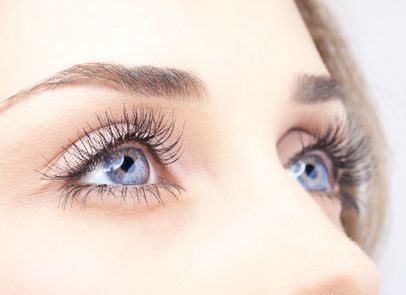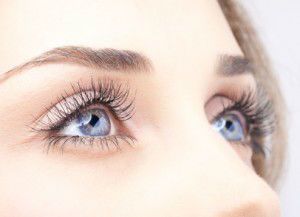
As we grow older, our eyesight naturally changes. The little details become more and more difficult to see and it becomes harder to focus clearly.
Generally, eyeglasses will help alleviate this problem. Unfortunately, glasses can’t correct some problems, including common eye diseases such as glaucoma, cataracts and dry eye. By addressing and correcting habits that may be harming your vision, you can help decrease the risk of developing an eye disease and potentially even losing your eyesight.
Not wearing sunglasses
Exposing your eyes to the harmful UV and high-energy visible (HEV) rays of the sun prematurely ages and damages both the eyes and eyelids. Extended periods of time in the sun without eye protection leads to sunburn of the eye’s surface, or photokeratitis.
It can also cause cataracts, macular degeneration or even cancer of the eyelid. Be sure to wear sunglasses that block all UV rays and HEV rays every time you go outdoors, even when it’s overcast.
Smoking
You likely already know how dangerous smoking can be, but did you know that it can also affect your vision? Smoking increases the risk of developing cataracts and retinal diseases that lead to the loss of vision.
It also worsens existing eye problems. Because smoking negatively affects blood circulation, the eyes don’t get the oxygen and nutrients they need to prevent eye stress and disease.
Staring at a computer screen for too long
Sitting in front of a computer all day can lead to eye strain and dry eye, which can cause the eyes to age prematurely. When you’re concentrated on the screen, you don’t blink as often as when you’re involved in more active pursuits.
The eyes focus on one spot for a long time, tiring the eye muscles. This also tends to increase evaporation of eye fluid, which encourages dry eye as well as eye strain.
If you have to work at a computer, be sure to take frequent breaks and gaze around the room in another direction as often as you can.
Poor diet
If you tend to eat a lot of fast foods and processed foods and not enough fruits and vegetables, you probably aren’t getting the nutrients you need for optimal eye health. A diet that includes a wide variety of fresh, organic, colorful fruits and vegetables, including leafy greens, as well as omega-3 fatty acid-rich foods like wild-caught salmon, can help prevent or manage most age-related eye diseases.
 Not drinking enough water
Not drinking enough water
Getting enough water is essential for good health, including healthy vision. If you aren’t drinking at least eight glasses of water a day, this can cause your body to dehydrate. If your body is dehydrated, it can’t produce enough tears to keep your eyes properly moist and nourished. You may also notice that you have puffy eyelids, red-eye or dryness when you haven’t drank enough water.
Do whatever you can do now to preserve your vision, in order to enjoy a higher quality of life, and independence, as you get older!
-The Alternative Daily

